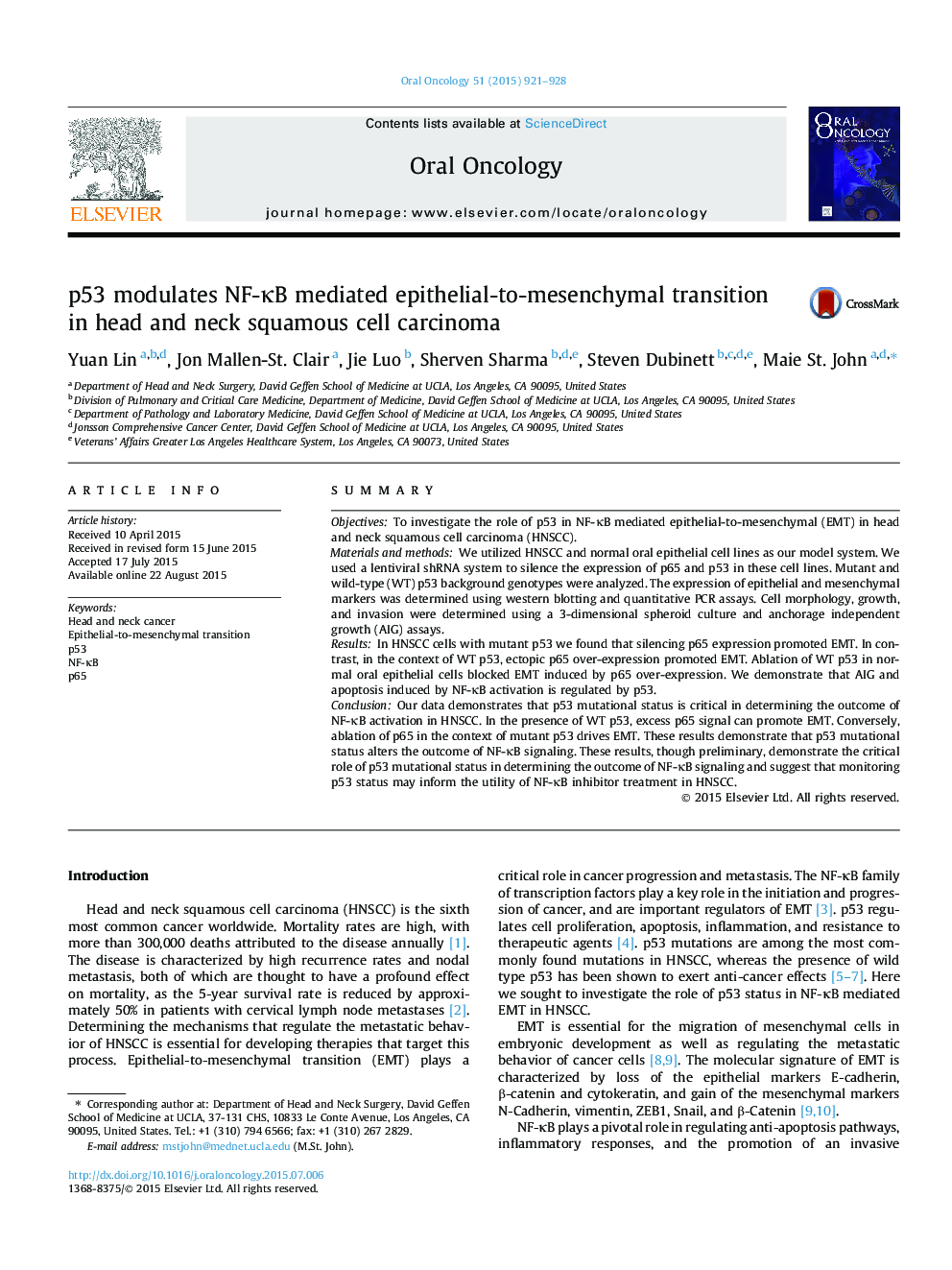| کد مقاله | کد نشریه | سال انتشار | مقاله انگلیسی | نسخه تمام متن |
|---|---|---|---|---|
| 6054896 | 1198758 | 2015 | 8 صفحه PDF | دانلود رایگان |

- We found that p53 status determines the outcome of NF-κB signaling in head and neck squamous cell carcinoma cell (HNSCC) lines.
- In the context of mutant p53, ablation of p65 results in epithelial-to-mesenchymal transition (EMT).
- In the context of normal p53, over-expression of p65 results in EMT.
- We demonstrate p53-dependent regulation of anchorage independent growth and apoptosis by NF-κB.
- These results suggest that monitoring p53 status should be considered when using NF-κB inhibitors to treat HNSCC.
SummaryObjectivesTo investigate the role of p53 in NF-κB mediated epithelial-to-mesenchymal (EMT) in head and neck squamous cell carcinoma (HNSCC).Materials and methodsWe utilized HNSCC and normal oral epithelial cell lines as our model system. We used a lentiviral shRNA system to silence the expression of p65 and p53 in these cell lines. Mutant and wild-type (WT) p53 background genotypes were analyzed. The expression of epithelial and mesenchymal markers was determined using western blotting and quantitative PCR assays. Cell morphology, growth, and invasion were determined using a 3-dimensional spheroid culture and anchorage independent growth (AIG) assays.ResultsIn HNSCC cells with mutant p53 we found that silencing p65 expression promoted EMT. In contrast, in the context of WT p53, ectopic p65 over-expression promoted EMT. Ablation of WT p53 in normal oral epithelial cells blocked EMT induced by p65 over-expression. We demonstrate that AIG and apoptosis induced by NF-κB activation is regulated by p53.ConclusionOur data demonstrates that p53 mutational status is critical in determining the outcome of NF-κB activation in HNSCC. In the presence of WT p53, excess p65 signal can promote EMT. Conversely, ablation of p65 in the context of mutant p53 drives EMT. These results demonstrate that p53 mutational status alters the outcome of NF-κB signaling. These results, though preliminary, demonstrate the critical role of p53 mutational status in determining the outcome of NF-κB signaling and suggest that monitoring p53 status may inform the utility of NF-κB inhibitor treatment in HNSCC.
Journal: Oral Oncology - Volume 51, Issue 10, October 2015, Pages 921-928